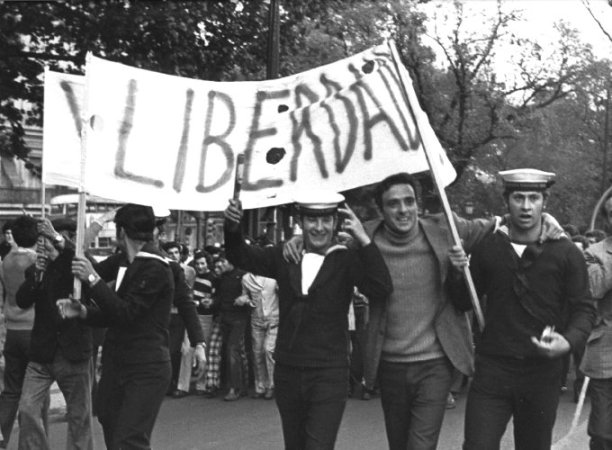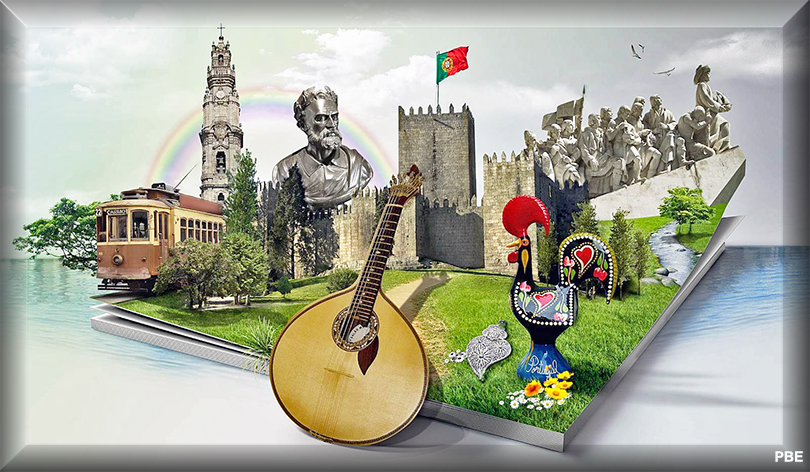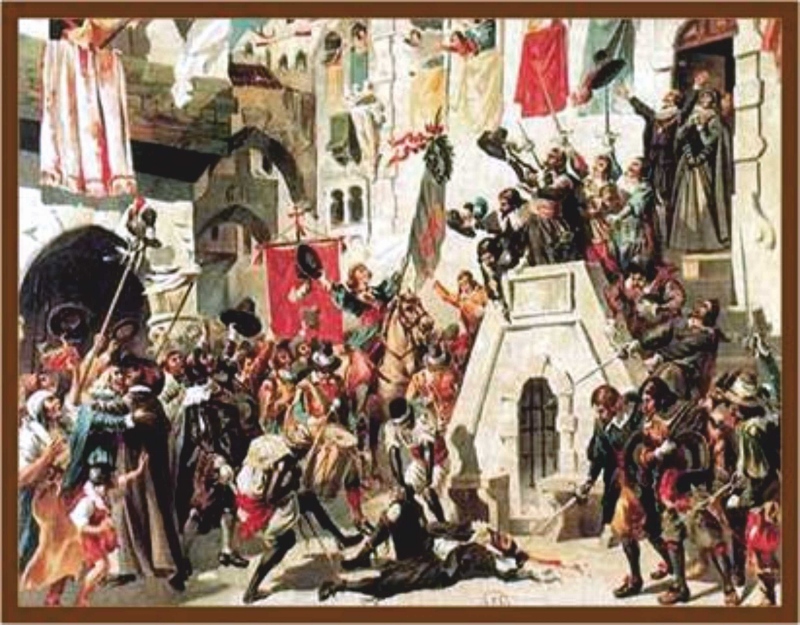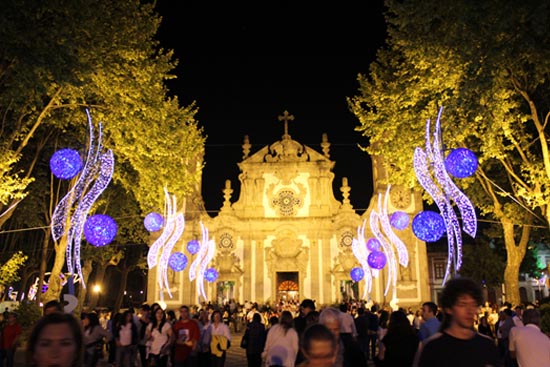Local holidays & important dates
Our country has its flaws but it is very loved by the Portuguese. In our country there are a lot of important dates, for example, the Day of Liberty, celebrated on April 25th, the Day of Portugal, celebrated on June 10th, the Implantation of Republic on October 5th and the Restoration of Independence on December 1st.
Day of Liberty – April 25th:
The Carnation Revolution, also referred to as April 25th, was initially a military coup in Lisbon, on April 25th 1974 which overthrew the regime of Estado Novo. The Revolution started as a military coup organized by the Armed Force Movement (MFA) composed of military officers who opposed the regime, but the movement was soon coupled with anticipated and popular campaign of civil resistance. This movement would lead to the fall of Estado Novo and the withdrawal of Portugal from its African colonies and East Timor. The Revolution was successful without violence and the carnation became its symbol because during the coup a lady in the street gave a carnation to one of the militaries, who used it in his gun.

The Day of Portugal – June 10th:
The Day of Portugal, officially the Day of Portugal, Camões and the Portuguese Communities, is Portugal’s national day celebrated annually on June 10th.
Although officially observed only in Portugal, Portuguese citizens and emigrants throughout the world celebrate this holiday. The date commemorates the death of national literature icon Luís de Camões on June 10th 1580(he was the author of the epic book Os Lusíadas, which celebrates Portugal´s History and achievements during the Age of Discoveries).

The Implantation of Republic – October 5th:
The establishment of the Portugal Republic was the result of a coup d’état organized by the Portuguese Republican Party which, on October 5th 1910, deposed the constitutional monarchy and established a republican regime in Portugal.
The Restoration of Independence – December 1st:
The Restoration of Independence in Portugal commemorates the regained independence from Spain, led by Portuguese nobles on December 1st 1640, which put an end to the Spanish dynasty in Portugal. In 1580, when Portugal’s only remaining prince died, the Spanish Prince Philip II overtook the country. The Spanish dynasty then ruled Portugal for sixty years until it was forced to leave in 1640.

Local Holidays
Senhor de Matosinhos (Lord of Matosinhos) – a Tuesday in the months of May or June:
The festival lasts for three weeks of religious festivities and recreational, cultural and sports activities happening this year May 6-29, being the municipal holiday on june 6th and the night of fireworks the previous Saturday, june3rd . The Feast of the Lord of Matosinhos is an all time high among the pilgrimages of the county and the north of the country, having acquired new dynamics with remarkable accessibility that Matosinhos was endowed. The Lord of Matosinhos extending for almost three weeks of religious festivities and recreational, cultural and sporting activities. Thousands of lights illuminate the party space and the Church of Bom Jesus de Matosinhos, whose altars are artistically decorated with beautiful flowers. In the temple, the work of Nasoni, pray to sermons and masses, party and solemn, and leaves a grand procession to the Lord of the Standard music bands enliven the streets and traditional gazebos, is exposed crafts, recall to legends and traditions, shows that the Inventory of Heritage and architectural Religious Matosinhos or in festival way, discloses the culinary prescriptions of fish and shellfish. Between the fire dolls, on Tuesday afternoon and the splendorous Saturday fireworks at night, there is table football, carousels and bumper cars, fritters, grilled sardines and caldo verde or supreme way to go to the party, buy traditional dishes the stalls of the China Fair.

-----------------------------------------------------------------------------------------------------
